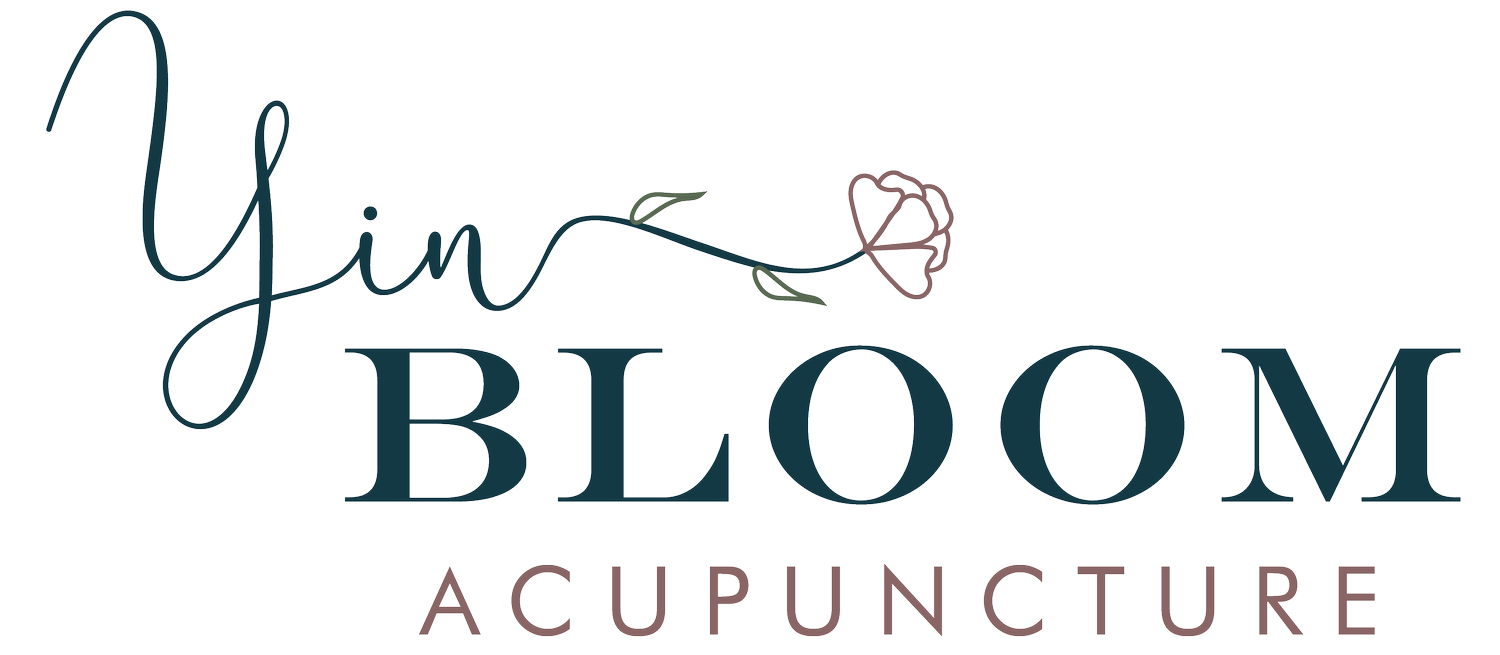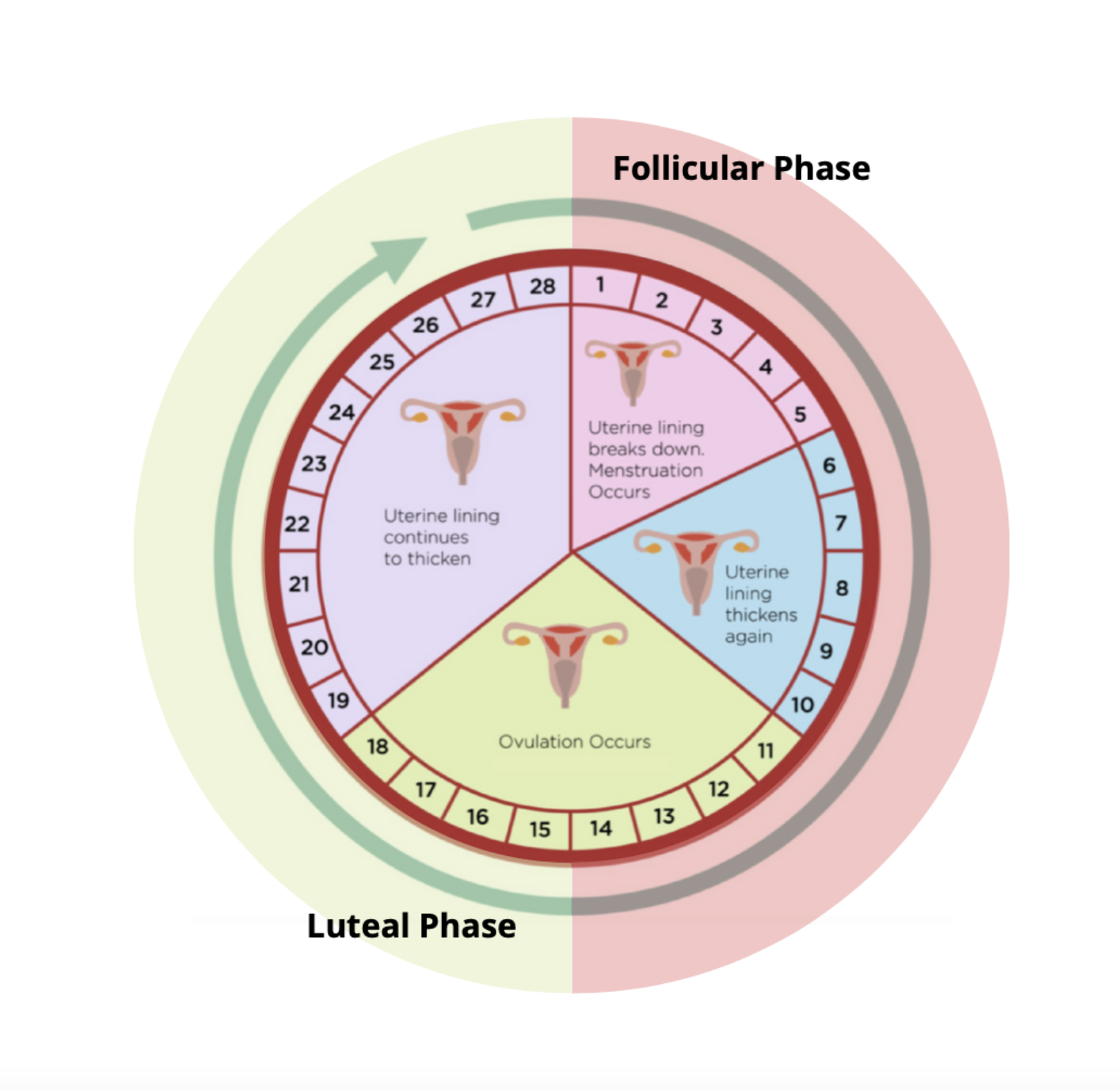Your Cycle and the Fertility Window
Your cycle, defined.
Your period. Aunt Flo. Shark week. The Crimson tide. That time of the month. Whatever you call it, for most of us it happens every month. While we tend to focus on the 3-7 of our period, our complete reproductive cycle, is so much more than that. It can run like clockwork or be unpredictable. It can impact our daily lives physically, emotionally, or not at all. Having a better understanding of your period and reproductive cycle can not only give you information about your health, but is important for fertility and conception. Let’s pull back the curtain and walk through each of the four phases starting with menstruation (your period).
During your period ( Day 1-5 )
If conception has not occurred, the levels of estrogen and progesterone decline. This causes the uterine lining your body had built up in case of conception to start to break down and shed. The first day of your period is counted as Day 1 of your cycle and continues until your period stops.
Next comes the follicular phase.
This phase is all about getting an egg ready for conception. At the start of menstruation your brain releases FSH( follicular stimulating hormone) to stimulate the maturation of the follicle. You can think of follicles as a protective sac for an immature egg. Each of these have the opportunity to become THE EGG, but only one will actually be released. The maturing follicles start to produce estrogen, which tells the brain to pick the lucky winner and signals your uterus to begin building up a lining again in case of conception.
This follicular phase lasts on average 14 days depending on your cycle. It overlaps with your period, beginning Day 1 of your cycle and continuing through to ovulation, when the egg is released from the ovary. In the diagram above the follicular phase covers Day 1 to about Day 16.
The ovulation phase usually happens right in the middle of your cycle.
This is the time when your ovary releases the mature egg, inside the follicle, ready to be fertilized. The follicle stimulating hormone has run its course for this cycle and is no longer produced. Instead, ovulation or egg release is triggered about 10-12 hours after the Luteinizing Hormone (LH) peaks. If you've ever used an OPK, or ovulation predictor kit, this is the hormone it is measuring. The OPKs can tell you whether the luteinizing hormone is present, but it can't tell you exactly when it peaks. Often this is when your basal body temperature can rise slightly and your cervical mucus becomes thicker and more slippery.
An egg can survive anywhere from 4-24 hours after ovulation, depending on the health of the follicle that produced it. Healthy follicles means longer-living eggs, which increase your chance of pregnancy. Unhealthy follicles reduce the lifespan of the egg. The best chance for pregnancy is to ensure that sperm are ready and waiting to meet that egg. Generally, sperm can survive up to 5 days, which gives a greater chance of the two meeting at the right time. Pregnancy is technically only possible if you have sex during the five days before ovulation or on the day of ovulation. But the most fertile days are the three days leading up to and including ovulation. Having sex during this time gives you the best chance of getting pregnant. When fertilization does happen, the egg implants into the uterine lining, signaling to the brain "We are pregnant!" via another hormone.
The luteal phase controls one of two things.
If you do become pregnant, the follicle that produced the egg changes into the corpus luteum and begins to produce a new hormone, human chorionic gonadotropin (hCG). If you've ever taken a home pregnancy test this is the hormone it is measuring. hCG helps keep the uterine lining thick and maintains the corpus luteum, which in turns makes progesterone, to keep the uterine prepared, until the placenta takes over in about 10-12 weeks.
If you do not become pregnant, or that isn't the goal, the corpus luteum is reabsorbed. This reduces the levels of estrogen and progesterone in your body, signaling to your uterus to shed the lining during your period, starting your cycle over on Day1 of your period.
Whether you're trying to conceive or not, your body is focused on it each month. Understanding your personal cycle, and how it works it can help you achieve pregnancy, and give you peace of mind knowing what you can and can't control.



